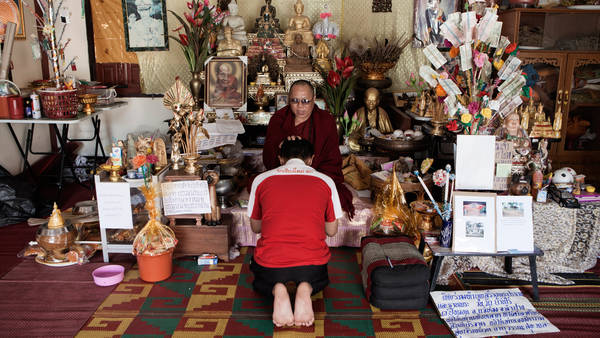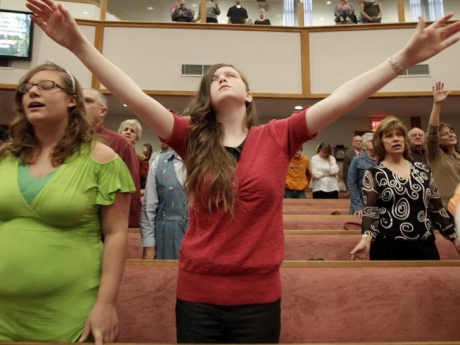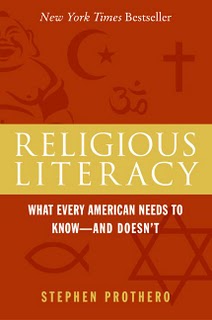 Rare enough that my old friend Dan Pipes posts any good news on developments in the Islamic world, so I jump on this post, thanks to reader Dan Hare.
Rare enough that my old friend Dan Pipes posts any good news on developments in the Islamic world, so I jump on this post, thanks to reader Dan Hare.
Pipes I know from my Naval War College research days (he too spent a stint there as prof), and although he comes off to many as THE firebrand, I personally know him to be a gentle soul and a first-class thinker, so I read him and listen whenever he's on TV, despite disagreeing with him a lot--no surer sign of respect.
What he notes from a European newspaper report on a recent study of mosque attendance:
It sounds unlikely, but Aftenposten, relying on new statistics, may be on to an important new trend ofdeclining Muslim mosque-going in Europe. Here, as reported by the "Islam in Europe," are some snippets:
The number of church-goers has dropped steadily for decades, but now there also a lot of space in mosques around Europe. Recent data from the extensive European Social Survey (ESS) show that the number of Muslim immigrants who regularly go to the mosque drops significantly after they've lived in their new homeland for some time.
The ESS figures, which are being published for the first time in Europe in Aftenposten, show that 60.5% of Muslims immigrants who have lived less than a year in Europe regularly go to the mosque. But after they've lived more than a year in their new homeland, the figure drops to 48.8%. More than half rarely or never go to the mosque to pray.
"In all European countries we see that Muslim immigrants are integrated and adapt to their new society. Part of that is that they become less religious and that they reject the traditional religious practice which their parents had in their homeland. They become more secular, says the famous Finnish religion-sociologist Heikki Ervasti from the University of Turku.
Ervasti, who analyzed the ESS figures, emphasizes that this development doesn't happen quickly. "This secularization process will take generations, and for the individual the changes aren't as dramatic. Even it it doesn't happen fast, it's a clear trend," says Ervasti, who says that this same development also occurs among immigrants of other faiths.…
What this data reminds us of is the underlying reality that, when people immigrate from a more religious environment to a less religious environment, they're not doing it to export their religion but to take advantage of the economic opportunities they are certain they will find there. Given enough time and opportunity, secularization follows. But not all succeed in this quest, and those dissatisfied types are particularly susceptible to radicalization--in that classic, Marxist alienated sense.
Thus, a big flow of immigrants sees two trends emerge: 1) an overall slow secularization among the bulk; and 2) a scary radicalization among the vastly unsuccessful minority. On the second point, don't assume that economic failure is required to qualify, because anything that makes you unhappy in your new life can do it. Thus the classic case is the moderately successful, well-educated type who, for some combination of reasons, feels deeply alienated in his new world.
And yeah, a certain lack of success in one's personal life is frequent within this crowd, so maybe they got the education, and maybe they're struggling a bit in their career, but what really irks them is this sense that life has not panned out as hoped for in terms of success in marriage, family and so on. EVERYBODY is susceptible to this disillusionment in life, but discombobulated immigrants more so. And when a radicalized alternative pathway is dangled in front of one's face by recruiters, it can easily become the path of least resistance. Immigrants are particularly susceptible because they feel some guilt for leaving the homeland and the old ways.
Point being, keep some perspective on both the macro (positive) and micro (negative) trends when evaluating immigrant flows.
 Thursday, February 21, 2013 at 9:41AM
Thursday, February 21, 2013 at 9:41AM 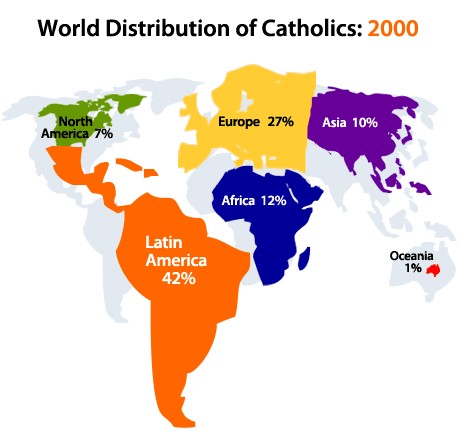
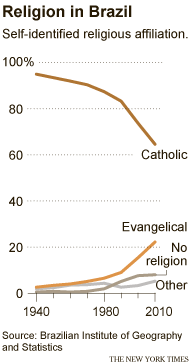 So both the center of global gravity in the church and its most likely form of marketing salvation.
So both the center of global gravity in the church and its most likely form of marketing salvation.








